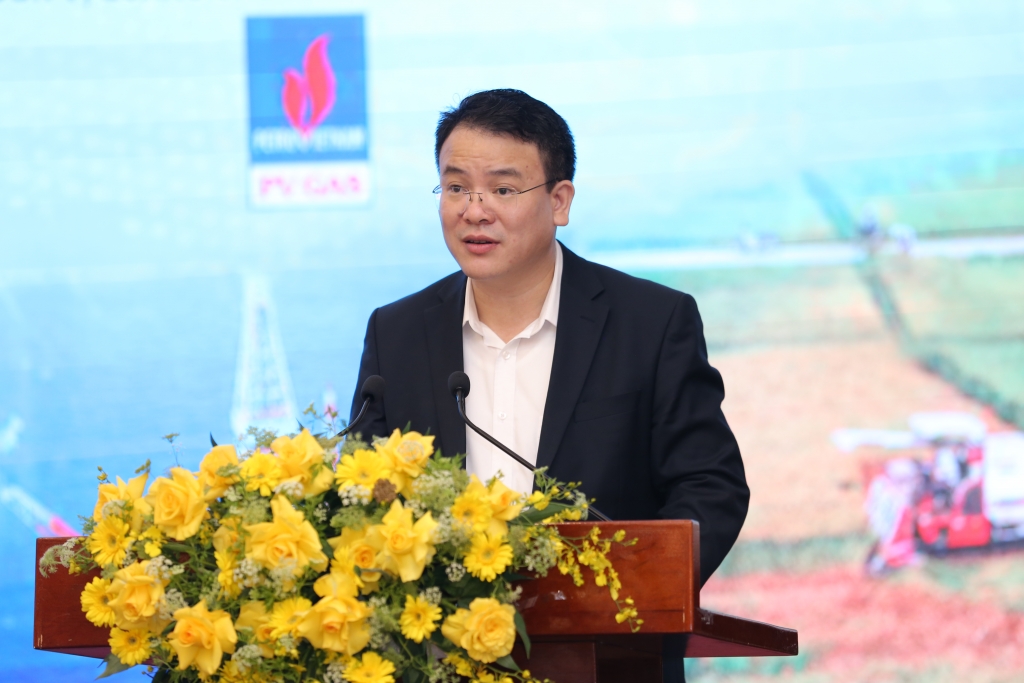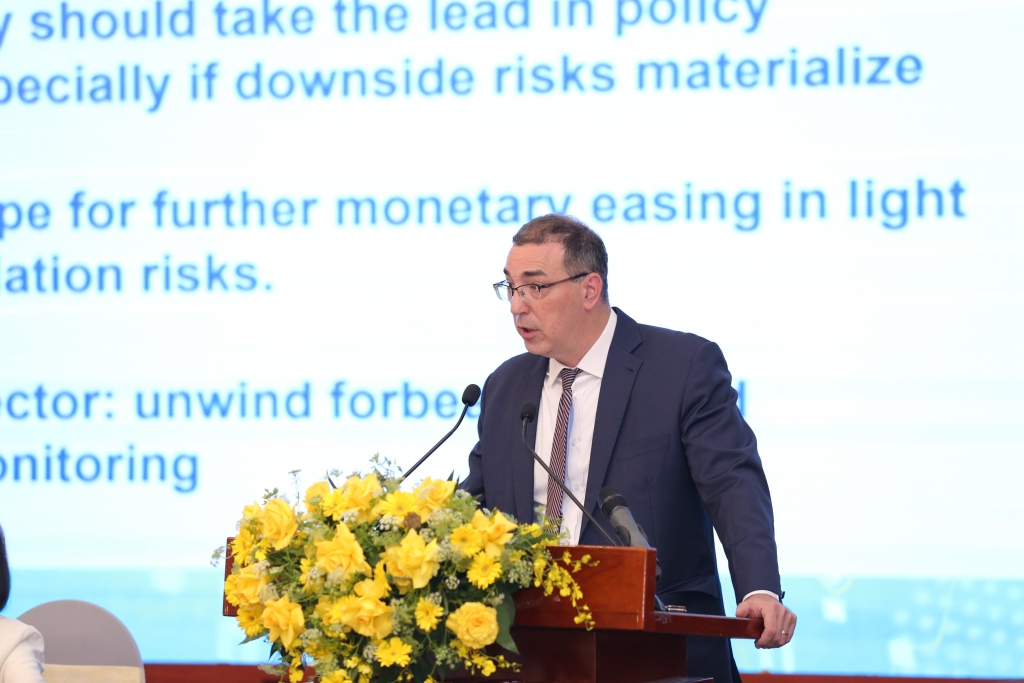Vietnam’s economy maintains recovery trend
The country, however, continues to face risks from high inflationary pressure, which, without proper action from the Government, may lift the inflation to over the 4% target set for 2022.
Vietnam’s economy continues to maintain its recovery trend during the first months of 2022 despite global uncertainties, said Vice Minister of Planning and Investment Tran Quoc Phuong at an economic conference held in Hanoi today [May 12].
| Vice Minister of Planning and Investment Tran Quoc Phuong. |
Phuong said Vietnam’s GDP growth expanded by 5.03% during the first quarter of the year, higher than the respective rate of 4.72% and 3.66% in the first three-month period of 2021 and 2020.
Meanwhile, the consumer price index (CPI), a gauge of inflation, expanded at a modest rate of 2.1% year on year, which remained lower than the 4% target set for this year.
Phuong also pointed out that the latest Business Climate Index (BCI) from the EuroCham, which reflects the sentiment of European businesses in Vietnam, has once again reached its highest point of 73 after the fourth wave of the pandemic.
The economic recovery has also been reflected in the all-time high of businesses created during the four months with nearly 50,000, as well as FDI commitments reaching a 4-year high of $5.92 billion.
“All of these factors have been the driving force for Vietnam’s economic growth,” Phuong said, referring to the Government’s decision in easing pandemic restriction measures as a key step to gaining business confidence in the country’s prospects.
Such a trend has also been recognized by international organizations, including the ADB with a GDP forecast of 6.5% for Vietnam in 2022, the IMF of 6%, and the World Bank of 5.3%.
Sharing Phuong’s view, Phan Duc Hieu, a member of the National Assembly’s Economic Committee, expected the upcoming socio-economic recovery program, worth an estimated $15.4 billion, would further speed up the recovery process, eventually helping the country reach average GDP growth of 6.5-7% in the 2021-2025 period.
Hieu anticipated monetary and fiscal support under the program would help contribute 2.9 percentage points to Vietnam’s GDP growth in 2022, and 0.2 percentage points by 2023.
“Time, however, is essential for the program to be effective, along with efforts to avoid waste of resources during the implementation period,” Hieu added.
| Resident Representative of IMF in Vietnam Francois Painchaud. |
High inflationary risks
Former Director of the General Statistics Office Nguyen Bich Lam highlighted the high inflationary risk to Vietnam’s economy, given the monetary easing policies that countries around the world are adopting, rising prices of strategic commodities in the global market, geopolitical tension, and subsequent disruption of supply chains.
This year, the IMF forecast Vietnam’s inflation at 3.9%, fast approaching the 4%-threshold, while Standard Chartered anticipated the rate may exceed this target and even go up to 5.5% in 2023.
A study from the BIDV Securities Company suggested in case the average oil prices in 2020 hovered around US$80 per barrel, Vietnam’s inflation may reach 4.5%, and 5.1% if the price surpasses $100 per barrel.
“Vietnam in this situation should continue raising its oil reserves to ensure energy security,” Lam noted.
Resident Representative of IMF in Vietnam Francois Painchaud called for Vietnam to maintain an agile policy-making process, in which the Government may consider limiting the scope for further monetary easing in light of rising inflation risks.
“Fiscal policy, therefore, should take the lead in policy support, especially if downside risks materialize,” he said.
In the mid-term, Painchaud stressed the necessity for Vietnam to enhance the resilience of the banking system to safeguard financial stability.
As part of the economic recovery process, the IMF representative urged Vietnam to continue promoting inclusive growth by utilizing state resources for social welfare, higher climate resilience, and addressing the issue of the aging population.














